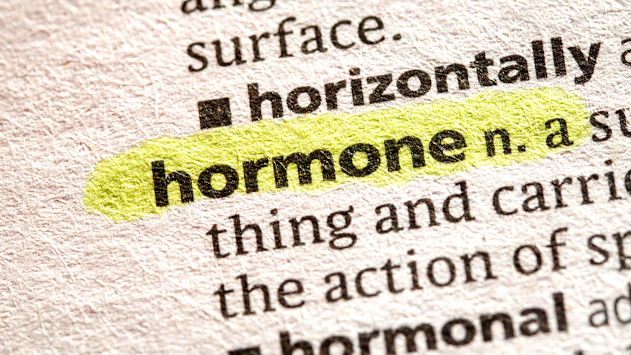The Carnivore Diet and Long-Term Weight Loss: What You Need to Know
The carnivore diet is one of the most extreme forms of low-carb eating, eliminating all plant-based foods and focusing exclusively on animal products. While the diet has gained popularity for its rapid weight-loss potential, its long-term sustainability and effects are often questioned. Can it help you lose weight in the long run, and is it safe for your health? In this article, we explore the nuances of the carnivore diet, its potential benefits, risks, and the challenges of maintaining it over time.
What Is the Carnivore Diet?
The carnivore diet consists solely of animal-based foods, including beef, chicken, pork, fish, eggs, and some dairy products. By cutting out carbohydrates and plant-based foods, the idea is that your body shifts from burning glucose to burning fat. Similar to ketogenic and paleo diets, the carnivore diet’s low-carb nature often leads to rapid initial weight loss, but its strictness sets it apart.
How Does It Promote Weight Loss?
Caloric Deficit Without Tracking:
One of the major reasons people experience quick weight loss on the carnivore diet is due to its simplicity and satiating nature. The high protein and fat content can make you feel full faster, naturally reducing your calorie intake without the need to track macros.1
Water Weight Loss :
When you eliminate carbs, your body depletes its glycogen stores, leading to a rapid loss of water weight in the first few weeks. This often gives people the impression of quick weight loss, but it’s important to note that this initial drop is mostly water.1
Ketosis and Fat Burning:
Like the ketogenic diet, the carnivore diet may push your body into a state of ketosis, where it starts using fat as its primary energy source instead of glucose. This can accelerate fat burning, especially in the early stages.1
Challenges and Risks of the Carnivore Diet
While the carnivore diet can lead to rapid weight loss, sustaining it over the long term is challenging for several reasons:
Nutrient Deficiencies:
A significant concern for long-term adherents is the risk of nutrient deficiencies. By excluding all plant-based foods, you miss out on important vitamins and minerals such as fiber, vitamin C, potassium, and magnesium, which are essential for heart and digestive health. Although meat contains essential nutrients, many carnivore dieters experience issues like hair loss (telogen effluvium) due to a lack of micronutrients.1
Gut Health and Lack of Fiber:
Fiber is critical for maintaining gut health and promoting regular digestion. A carnivore diet, which lacks fiber, can lead to digestive problems such as constipation or diarrhea. Long-term lack of fiber may also affect the gut microbiome, increasing the risk of inflammatory bowel conditions.1
Metabolic Slowdown:
Initially, you may experience weight loss due to caloric deficits, but over time, your basal metabolic rate (BMR) may slow down as your body adapts to lower caloric intake. This phenomenon, known as metabolic adaptation, can cause weight loss plateaus, making it harder to continue shedding pounds.1
Hormonal Imbalances and Stress:
Hormonal imbalances can occur, especially if the diet isn’t well-balanced with adequate fats. High cortisol levels (the "stress hormone") can slow fat loss by promoting fat storage, particularly around the abdomen. Women, in particular, may experience more hormonal fluctuations that can hinder sustained weight loss.1
How to Optimize the Carnivore Diet for Sustainable Weight Loss
Balance Protein and Fat:
Consuming too much protein without enough fat can lead to gluconeogenesis, a process where your body converts excess protein into glucose. This can interfere with fat-burning and cause you to retain weight. Aim for a ratio of 1:1 grams of fat to protein to ensure that you’re not inadvertently stalling your weight loss.1, 2
Incorporate Strength Training:
Resistance training can help you preserve lean muscle mass, which is important for maintaining a healthy metabolism. Muscle burns more calories at rest than fat, so including regular weightlifting or bodyweight exercises can boost your metabolism and prevent weight loss plateaus.1
Manage Stress:
Chronic stress can raise cortisol levels, leading to increased appetite and fat retention. Incorporating mindfulness practices like meditation, deep breathing, or yoga can help mitigate stress and keep your hormones in check.1
Consider Supplementing:
Given the limited variety in the carnivore diet, you may need to take supplements to address nutrient gaps. Vitamin D, magnesium, potassium, and fiber supplements are often recommended. You might also consider collagen supplements if you experience hair loss.
Unique Considerations: Hair Loss and Telogen Effluvium
An often overlooked side effect of the carnivore diet is telogen effluvium, a form of hair loss caused by extreme dietary changes or nutrient deficiencies. While this condition is temporary, it can be alarming to those experiencing it. Ensuring you consume adequate nutrients, either through supplements or organ meats like liver (which is high in vitamin A, iron, and other critical nutrients), can help prevent or reverse this issue
Is the Carnivore Diet Right for You?
The carnivore diet may work for some individuals seeking rapid weight loss, but its extreme restriction and potential health risks make it difficult to recommend for the long term. If you decide to try this diet, it’s important to monitor your health closely and consider transitioning to a more balanced eating plan after a few weeks to ensure you meet your nutritional needs.
Conclusion:
The carnivore diet can offer a quick fix for weight loss, but it’s essential to approach it with caution and awareness of the potential downsides. Long-term success requires careful planning, including attention to nutrient intake, exercise, and stress management. As with any diet, it’s crucial to consult a healthcare professional before making drastic changes to your eating habits.


.png)







